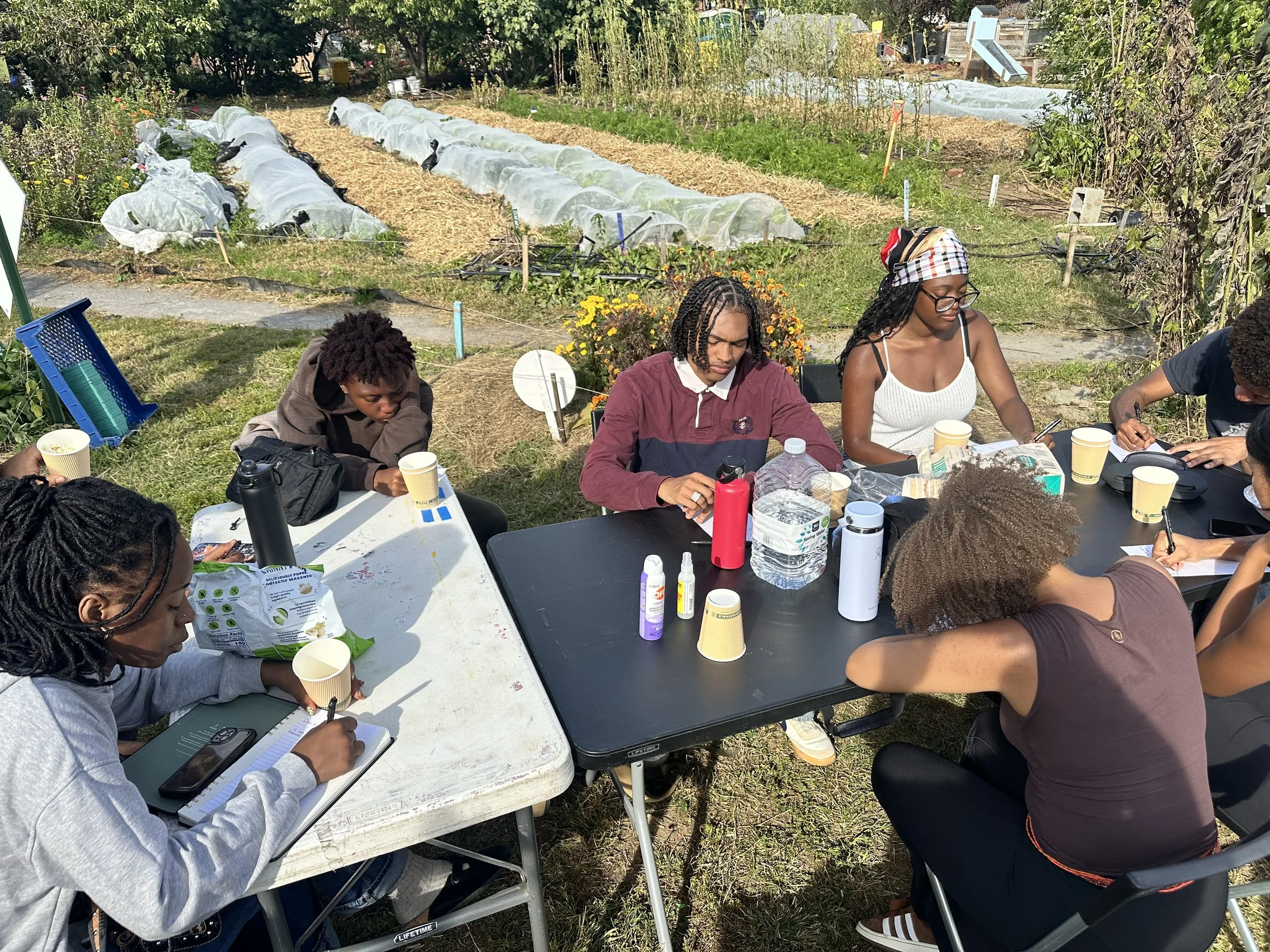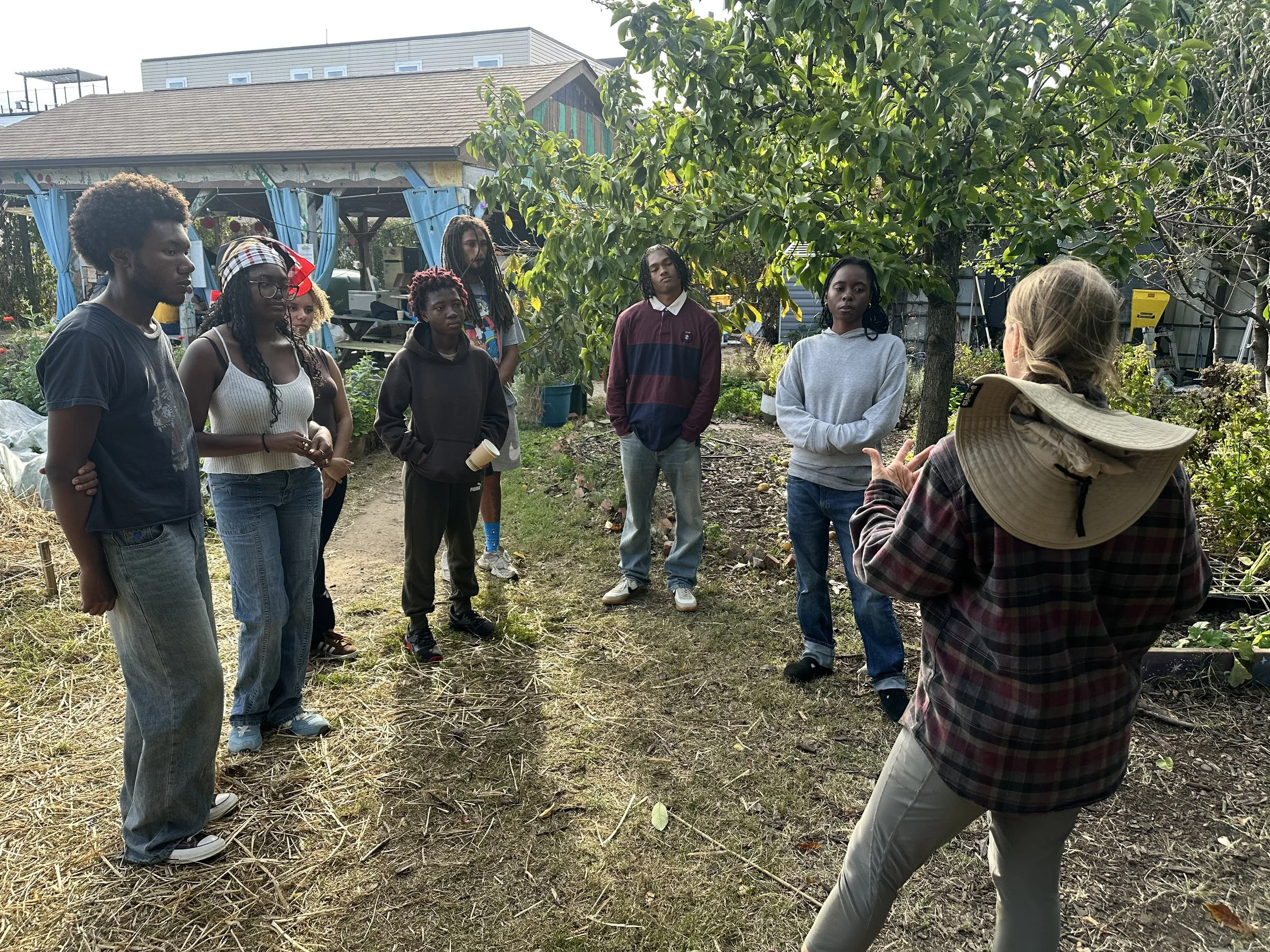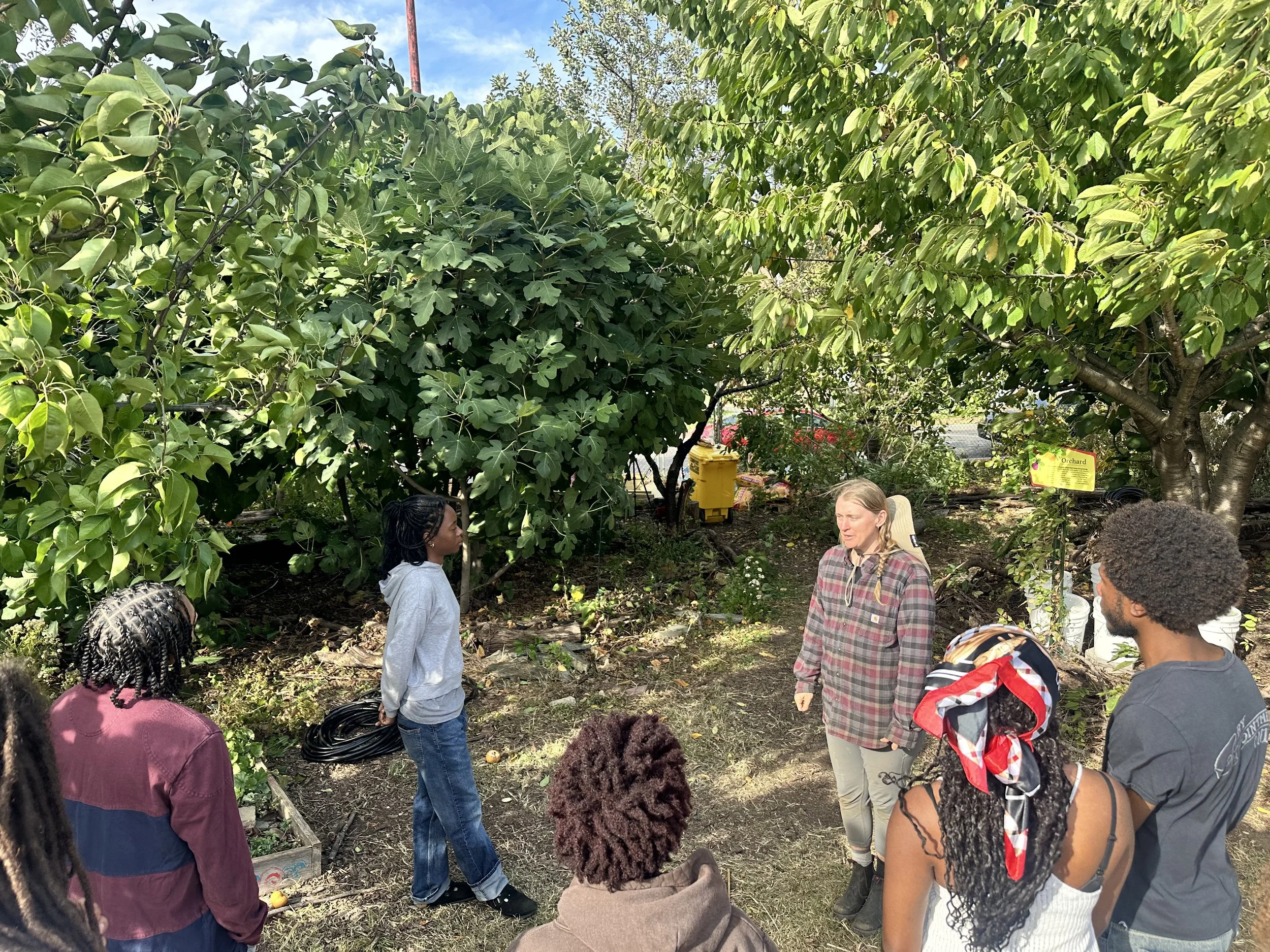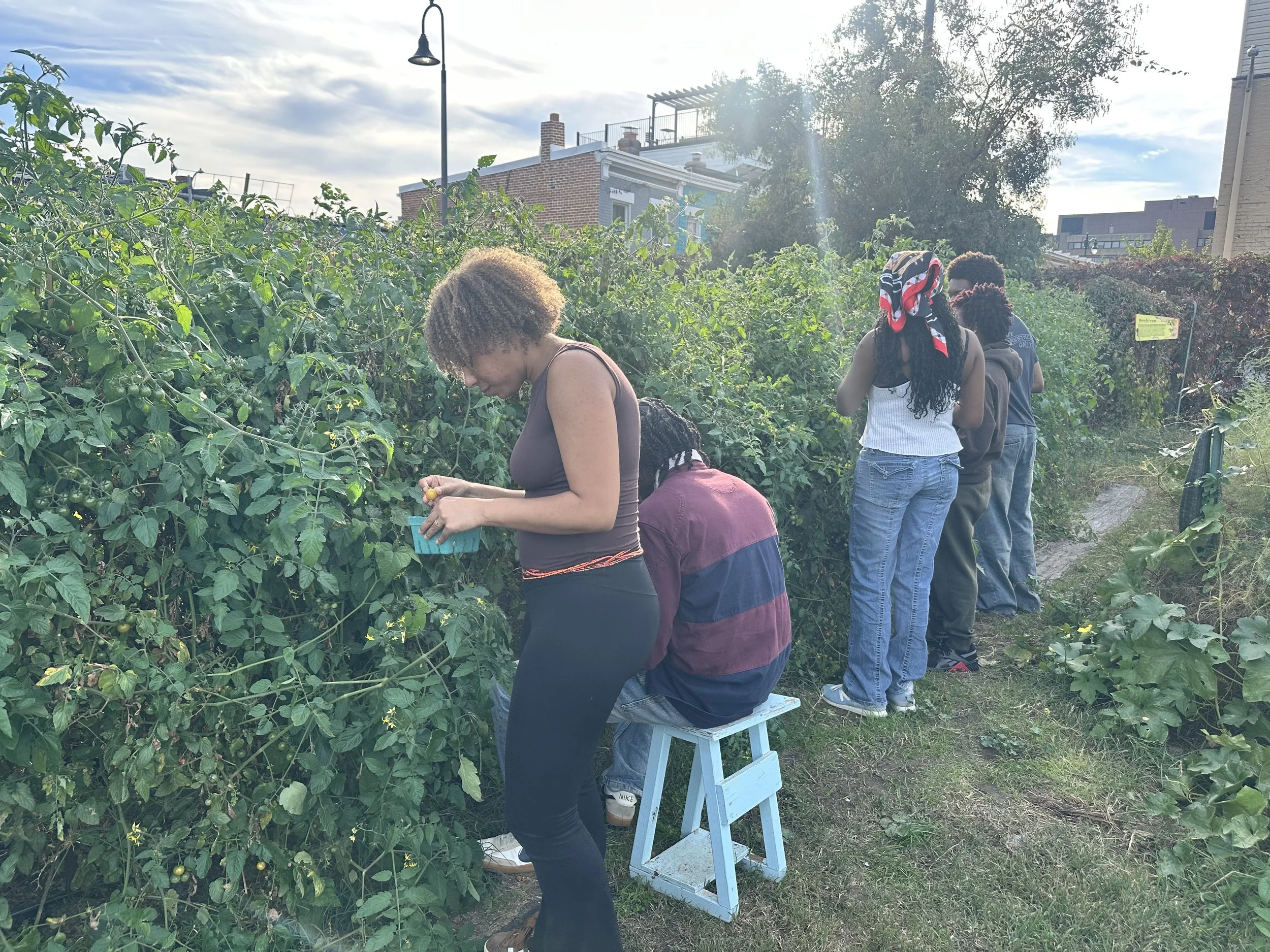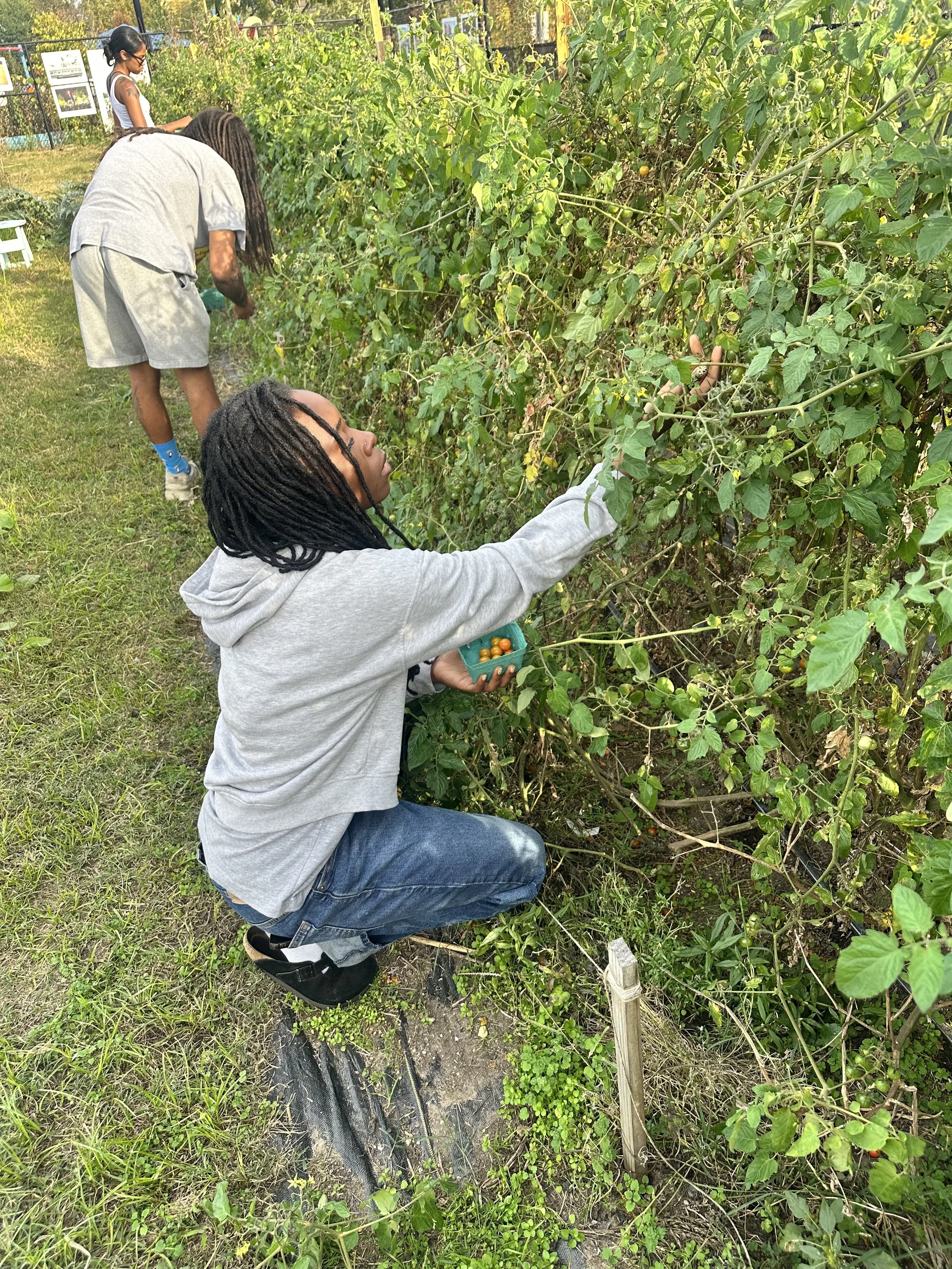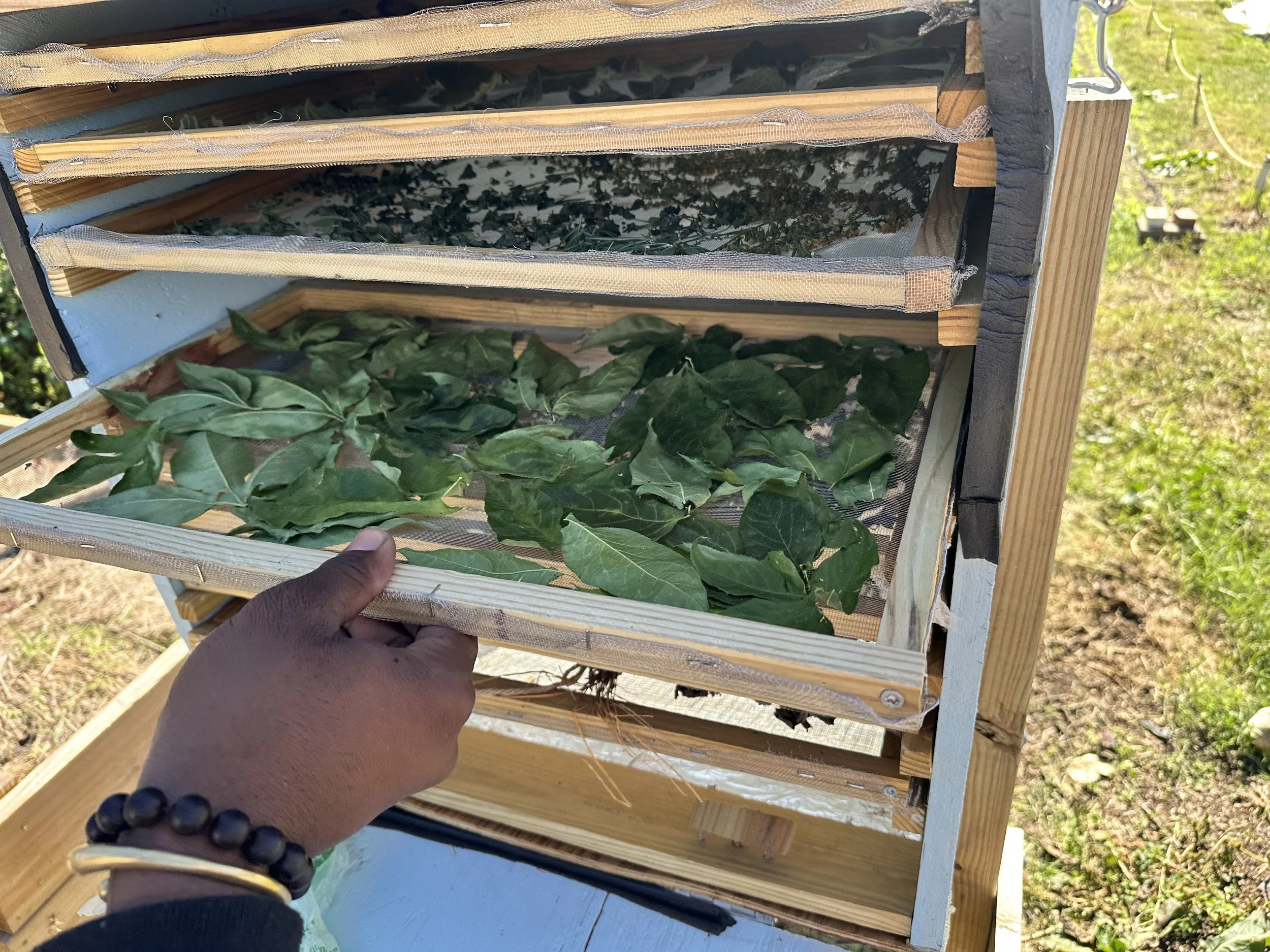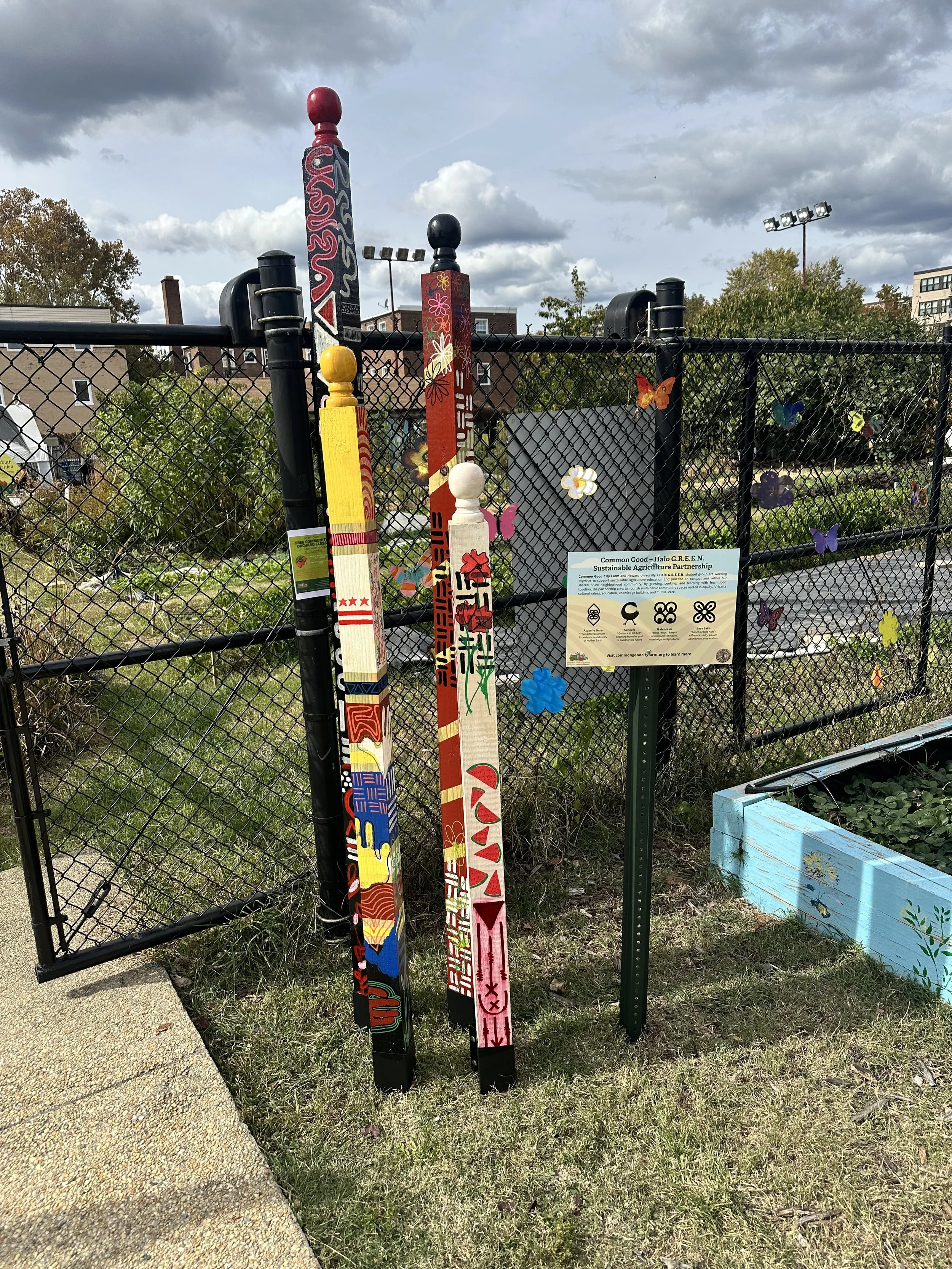Common Good + Halo G.R.E.E.N. Sustainable Agriculture Partnership
Common Good City Farm and Howard University's Halo G.R.E.E.N. student group are working together to support sustainable agriculture education and practice on campus and within our shared Shaw neighborhood community. By growing, cooking, and learning with fresh food together, the partnership aims to nourish sustainable community spaces rooted in equity, Africana cultural values, knowledge, and mutual care.
On Friday, October 17th, 2025, we kicked off the partnership. Farm staff and student leaders described the purpose, as well as their vision for its future. Learn more from the Washington Informer’s feature.
Educational Support for Halo Students
Mini-Course Support: Regenerative Agriculture as Restorative Practice
This mini-course aims to help participants understand the “big picture” as it relates to the importance and significance of regenerative agriculture, especially as it relates to people of African descent in the United States. It introduces 2 overarching concepts, interconnectedness (Ancestry, spirit, culture, and cooperation) and environmental disruption and restoration.
Halo G.R.E.E.N. members engage in group study that consists of several components that are outlined within the curriculum: 1. Individual group review of free and accessible materials, including articles, podcasts, videos; 2. Group discussion on the farm or Halo garden space of information within study materials, 3. Related hands-on activity, such as harvesting and grounding exercises to directly and collectively connect with the land.
This course was designed for Halo G.R.E.E.N. students, however is useful for any group or class that wants to engage in collective study. Learn more about the mini-course and access the curriculum.
Common Good - Halo G.R.E.E.N. Student Fellowship
Some members of Halo G.R.E.E.N. will be eligible to participate in Common Good’s annual Certificate Program in Regenerative Agriculture and possibly to obtain a seasonal farm support job.Through this program, more of the students that manage Halo’s organic garden on Howard University’s campus receive formal agricultural training to help enhance their own garden and greenhouse. They also receive stipends for personal use, as well as to apply towards final projects to enhance either the Halo Garden or Common Good City Farm.
More About Our Partnership
Physical Markers: A reminder of mutual support
As a physical marker of this mutually beneficial partnership, there are garden totems standing at both Halo Green and Common Good City Farm (a total of 7). Each is designed through cultural and Indigenous influences that reflect unity, balance, abundance, education, and regeneration. They connect the student learning space to the community farming space down the road, as mycorrhizal networks connect plant and microbial life across forests; a living web of mutual support. The totems will remain as markers — to be maintained and revisited by future cohorts.
Our Shared Cultural Values
Asase Ye Duru - “The Earth has Weight”: symbol of providence and divinity of Mother Earth
Mate Masie - “What I hear, I keep and understand”: Symbol of wisdom knowledge and prudence
Sankofa - “Go back to fetch it”: Symbol of Learning from the past to build for the future
Bese Saka - “Bunch of Kola Nuts”: Symbol of affluence, power, abundance, plenty, togetherness, and unity

